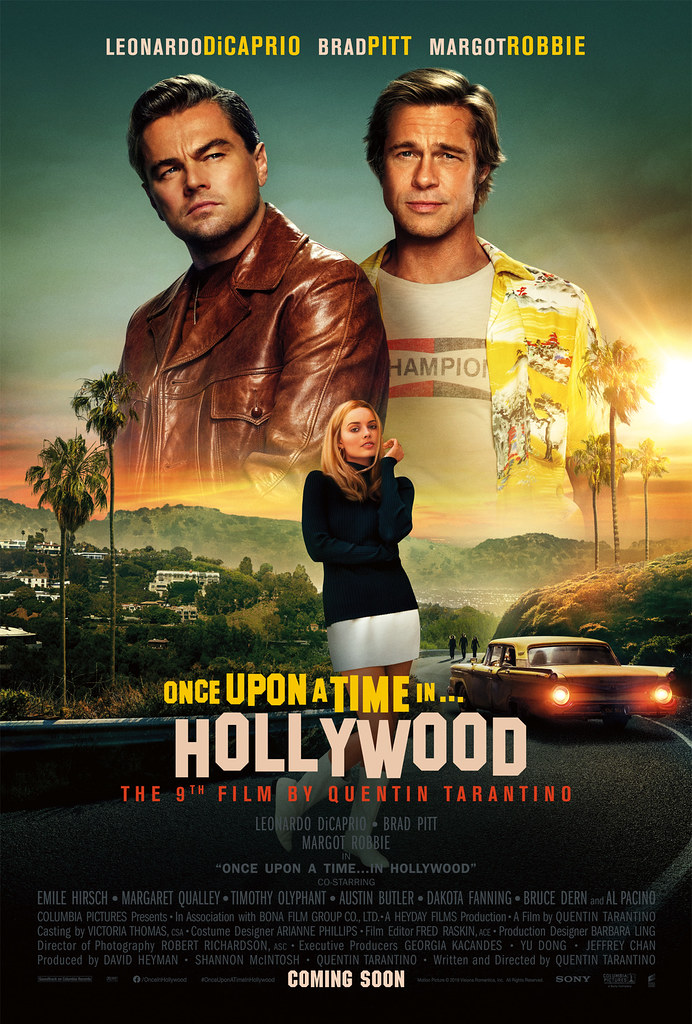
Inspired by the infamous Manson murders, Quentin Tarantino’s ninth film, "Once Upon A Time In Hollywood" follows the story of rising actor Sharon Tate, aging TV cowboy star, Rick Dalton, and Dalton's personal stunt man, Cliff Booth.
Weaving through these three character’s stories, the film reflects three different stages that actors undergo in their quest for stardom. Leonardo DiCaprio (Dalton) represents the aging stars of Hollywood who have to take risks to revamp their careers. Brad Pitt (Booth) represents the working man whose controversial past has prevented him from finding work. And lastly, Margot Robbie (Tate) represents the promise of Hollywood, a rising star with the world in her hands.
The film dives into the unique perspective of Dalton, a desperate movie star who craves the spotlight again. This creative choice initially received backlash, but DiCaprio's portrayal overpowers the criticism. His sincere performance didn't feel like Rick Dalton's story; this role felt like Tarantino's love letter to DiCaprio.
Cliff Booth's loyalty to Dalton is commendable, especially since his controversial past left him almost nothing. Much like DiCaprio, Pitt didn't need much direction, as his character matches his personality. This convincing portrayal of Booth earned Pitt an Oscar.
Margot Robbie's character, Sharon Tate, may seem like an accessory to the movie, but the entire film revolves around her. Tarantino teases Tate's presence throughout the film, leading up to a revelatory conclusion in which she survives the ordeal. It's Robbie's touching performance that completes the movie, as she adequately pays tribute to Tate.
Tarantino has produced revenge films lately: Django Unchained—slavery revenge tale, and Inglorious Bastards—Jewish revenge tale. Once Upon A Time In Hollywood is Sharon Tate's revenge tale, as Tarantino entertains the thought of the Manson murderers going to the wrong house. The first two acts are a beautiful tribute to the 1960's, but the last act contains what Tarantino fans love: gruesome violence and gleaming redemption.
Overall, this movie exemplifies excellent film-making. With convincing portrayals and dialogue, the film serves as a nice break from the superhero stigma.


